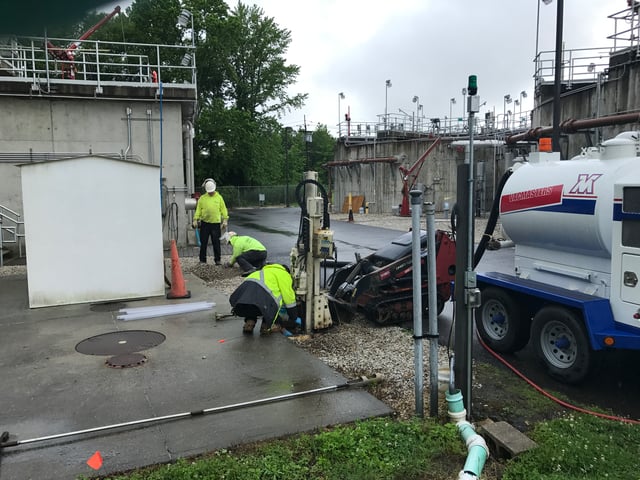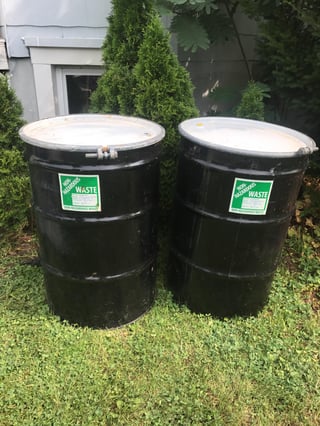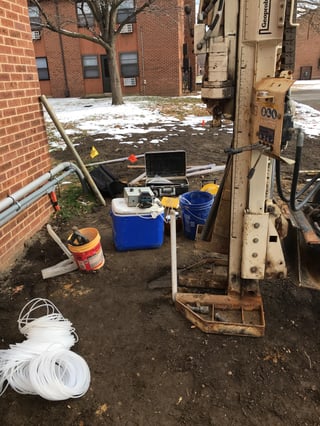NJDEP LSRP Program
New Jersey created a program to expedite the cleanup of contaminated properties in New Jersey. If you are responsible for a commercial property that has soil or groundwater contamination you are a RP (responsible party) and the LSRP program will affect you. The LSRP program requires certain responsible parties (RPs) in New Jersey to enter the program by retaining an LSRP. The program is meant to ensure timely compliance with applicable environmental regulations. Deadlines, fees and fines for non compliance and fines for missing deadlines are all part of the program. In short you hire an LSRP like any professional (accountant, lawyer) to help you navigate rules and regulations. The LSRP is supposed to work without active NJDEP involvement which is meant to expedite the process, which is a positive of the whole program. A downside is since the NJDEP has no active involvement, but will still want to provide input, the NJDEP is allowed to audit the work for three years after submission. These reviews typically occur after the LSRP deems the site completed and has issued the closure document RAO (Response Action Outcome). Theses audits maybe as simple as changes to a form, the addition of language that the NJDEP deems to not be clear enough or to an and do reopen closed classes for both clerical and disagreements over professional judgments.

The LSRP program has pushed many sites to closure and has made sites where parties may have thought all work was completed and in compliance to be restarted.
The program is unique as there are only a handful of states that have similar based programs. For good or for bad if you are responsible for a commercial contaminated site in New Jersey, you will be going through this program. Less than five states (you don't really want to know the actual number) have LSRP programs so you can see how new of a program you are dealing with. The program has evolved since when it was first implemented, with new forms and tweaks that should be expected when any new process start. A more detailed overview is listed below.
If you have questions, Curren offers a no cost, no obligation consultation on your project needs. As a matter of course, we cannot accept every project that arises as we hold responsibility to steer the project to NJDEP mandated time frames, we cannot simply hand stamp a project to buy time for an RP, as the fees and fines the NJDEP has established for not meeting mandatory time frames in conjunction with the LSRP program are burdensome.

The New Jersey Site Remediation Reform Act (SRRA), was a sweeping change to the way certain contaminated sites are remediated in New Jersey. Under the SRRA program responsible parties (RPs) are required to follow environmental regulations pertaining to their site in both a timely manner and under the direction of an experienced and licensed environmental professionals known as Licensed Site Remediation professionals (LSRP). To understand how unusual the program is, one only has to look at other States that have similar programs. Only Massachusetts has a similar program.
Inauguration day of the NJDEP LSRP program was May 7, 2012. The obligation of sites regulated by the LSRP program were then required to follow the Site Remediation Reform Act, N.J.S.A. 58:10C-1 et seq. (SRRA). Theses sites were then required retain an Licensed Site Remediation Professional (LSRP), and proceed with site investigation and remedial activities. This was a change from prior regulations where responsible parties needed New Jersey Department of Environmental Protection (Department) approval following N.J.S.A. 58:10B-1.3b(1) through (9). By removing NJDEP involvement, sites would be able to proceed at a faster pace toward completion. This allows for faster redevelopment of sites and in cases of sale quicker property transfers.
Not every site in New Jersey falls under
the umbrella of the LSRP program. The program does not apply to a variety of required remediations, including the remediation pertaining to unregulated heating oil tanks, NJDEP publicly funded cases, and landfill cases that have NJDEP oversight.

Important Facts of the NJDEP LSRP Program
- A Site Remediation Professional Licensing Board was formed to issues licenses to qualified individuals (LSRPs). The board also has review of the code of ethics each LSRP must follow. LSRPs who neglect their responsibilities or behave in an manner not in compliance with the code are subject to penalties and the suspension or revocation of their LSRP's license.
- Responsible parties are obligated to conduct the necessary remediation, when a discharge is present as detailed in the Spill Compensation and Control Act.
- Set time frames are established regarding completing each phase of a project, including investigation and remediation. These timelines help ensure that sites get completed on a fast track. You can reference the document at Administrative Requirements for the Remediation of Contaminated Sites(ARRCS) at N.J.A.C. 7:26C-3.3.
- Sites no longer receive a No Further Action (NFA), but rather a Response Action Outcome (RAO), which is issued by the LSRP without NJDEP involvement. This LSRP control of closure of a site is another fast track measure of the program. A key point of an RAO is that the NJDEP has a three (3) year review period where they can review the case that has received an RAO and ask for amendments to the site, further testing, further remediation and for the RAO to be rescinded. This is a hang nail of the program, as many sites enter the program via a real state transaction such as an ISRA triggering event or a Phase I, II or III environmental assessment performed during a property sale. These real estate transactions can engulf a site into the program.
- In certain situation, the program can allow the NJDEP to take direct oversight control of a site, thus guiding the remediation and requiring the responsible party to establish a Remediation Trust Fund to pay for work.
- Requires the Department to establish presumptive remedies for residential development, schools and childcare facilities to ensure that the remedy implemented at the site is protective of human health and safety and of the environment.
Questions? Speak to a professional Monday to Friday 8:00 am to 5:00 pm EST time 856-858-9509


